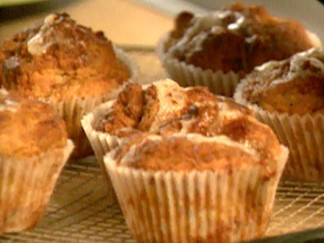Welsh rabbit - or is it rarebit - or English or Scottish?
- Apr 16, 2022
- 6 min read
"Rarebit or rabbit? I like the latter; which (so the story goes) is what the hunter had for his supper when the rabbits had escaped his gun."
Delia Smith

Well sort of - and of course all the stories that I found are all to be taken with a pinch of salt anyway, as all food origin stories are.
The story begins way back in the 1500s, when the Welsh became famous for eating baked cheese. A dish called Caws Pobi. Attached to this is a medieval joke that has St Peter wanting to eject the riotous Welsh from Heaven and so he called out "Caws Pobi" whilst he opened the gate and the Welsh all rushed out in search of it - which explains why there are no Welsh in heaven. It must be an English joke I think.
We then jump to 1725 when the dish we now know first appeared as Welsh rabbit. Hannah Glasse, in her 1747 cookbook included a recipe and called it Welsh rabbit. Rarebit did not appear until 1781. They think that is was introduced to make it sound posher. It's an invented word - not used for anything else - but still I guess rare and bit is more exclusive than rabbit which, back then, was definitely poor man's food. Indeed it still was when I was a child. Not any more. But back in the 18th century it was a dig at the very poor Welsh.
"in England, rabbit was the poor man's meat, but in Wales the poor couldn't even run to that, so cheese was the poor Welshman's rabbit." Hugh Fearnley-Whittingstall
It's interesting then to see who uses the term rarebit and who uses rabbit, although admittedly many of them may well be just using a particular term in ignorance.
But before I get on to actually what it is and how it is made, a word about other traditional variations.
English rabbit - according to Hannah Glasse this is made as follows, but I have to say I cannot find a modern recipe for this:
"To make an English rabbit, toast a slice of bread brown on both sides, lay it in a plate before the fire, pour a glass of red wine over it, and let it soak the wine up; then cut some cheese very thin and lay it very thick over the bread, and put it in a tin oven before the fire, and it will be toasted and browned presently. Serve it away hot."
Scotch rabbit - again according to Hannah Glasse:
"To make a Scotch rabbit, toast a piece of bread very nicely on both sides, butter it, cut a slice of cheese about as big as the bread, toast it on both sides, and lay it on the bread."
Which sounds very much like something called Welsh toasted cheese from the cookbook of 1867 by Lady Llanover, as quoted by Elizabeth David.
"Welsh toasted cheese, and the melted cheese of England are as different in the mode of preparation as the cheese itself. Cut a slice of the real Welsh cheese made of sheep's and cow's milk, toast it at the fire on both sides, but not so much as to drop: toast a piece of bread, less than a quarter of an inch thick, to be quite crisp, and spread it very thinly with fresh cold butter on one side (it must not be saturated with butter) and lay the toasted cheese upon the bread and serve immediately upon a very hot plate."

Buck rabbit (sometimes called Golden buck) - now this one still exists - you serve an egg on top - a bit like a Croque Madame. And indeed Hugh Fearnley-Whittingstall includes a version, shown here in his article called Posh cheese on toast recipes. There's also a version with smoked fish and one with leeks and cheese - both of these being fairly common modern alternative versions. Particularly the leeks - well they are traditionally Welsh too.

Blushing bunny - this sounds rather revolting - blended with tomato soup.
So much for the supposed tradition. I do remember that we had a Welsh rarebit every now and then in our childhood - and yes, we in our ignorance called it a rarebit. I vaguely remember liking it which is strange because I also remember that I really didn't like cooked cheese - it actually made me gag. So one memory or the other must be wrong.
So what is it? Surely it's not just cooked cheese on toast? No it's cooked cheese on toast but with extra flavourings. Now the method and the flavourings change from person to person, and, of course Felicity Cloake takes you through the most common variations. Beer and mustard - English mustard seem to be absolutely essential - although this doesn't stop others playing around with that - and also Worcestershire sauce. They also quarrel about which kind of cheese. When and how you add these things is another variable, and also whether you make a sauce with your cheese and things first and then pour it over the toast before grilling, or whether you just mix them together, pile them on top of the toast and then grill.

Which seems the simpler approach and one that Delia, for one follows - although she can't resist meddling (which is what I like about her I have to confess) by adding sage and onion to the mix - Welsh rabbit (rarebit) with sage and onions. And she also has a bet two ways with rabbit and rarebit.

But she then goes and really messes with the idea by making a souffléd version. As do the Two Fat Ladies, whose version is shown here - not very enticing I think. Delia has no photograph but you can find the recipe here.
"A rarebit is the world's most comforting and substantial form of cheese on toast. A good one is so tempting when it emerges, charred and bubbling, from the grill that it's hard to resist eating in its scorch-the-roof-of-your-mouth piping hot state." Hugh Fearnley-Whittingstall
So just to get you going here are some examples - some more or less traditional, some not:
Welsh rarebit with attitude from Jamie Oliver - the else with a name like that? - the attitude bit is some chutney which is spread on the toast before the cheese; Baked Welsh Rabbit from Nigel Slater who soaks his bread in wine first - another kind of English rabbit perhaps; Welsh rarebit from our own Matt Preston who is one of those who includes leeks; Welsh rarebit muffins from Nigella who does not include any beer - and besides they're muffins not toast; Fergus Henderson's apparently renowned version and finally a selection from BBC Food whose variations include crab, bacon and smoked haddock.
I first started on this when I was checking out Hugh Fearnley-Whittingstall's Love Your Leftovers, because in his introduction he had this rather lovely description:
"A few dried-up odds and ends of cheese, a bit of leftover meat, a dab of cream in dignified old age, the remains of an excellent loaf and some seasonings rummaged out from the back of the store cupboard, can create a rarebit that will beat the world - or at least a raging hunger." Hugh Fearnley-Whittingstall
A sentiment that is supported by Stephen Bush of The Guardian although in rather more up front terms:
"I am struck by the fact that many of these time-saving, money-saving or effort-saving recipes can effectively be boiled down to “grab whatever crap you’ve got left in the fridge and melt cheese over it.” Stephen Bush - The Guardian
True though.
So give it a go next time you really can't be bothered with cooking a proper dinner, but tart it up a bit with whatever you've got.

"play around with different kinds of cheeses and beers until you find one that would tempt you out of paradise. Because if heaven isn't toasted cheese, then I don't know what is." Felicity Cloake
And don't worry if your experiments fail - even Nigel Slater confesses it has been difficult:
"I have had a number of minor disasters with traditional recipes for this savoury little delicacy, mostly involving mixtures that will not thicken or that turn irretrievably lumpy." Nigel Slater
It's a little bit Easter too - well rabbits. Yes a bit far-fetched, but nevertheless I'll just throw it in there.
And I'll finish with Nigel again. Sorry. This is from the first page of his autobiographical memoir Toast. No cheese and English not Welsh, but I couldn't resist.

"It is impossible not to love someone who makes toast for you. People's failings, even major ones such as when they make you wear short trousers to school, fall into insignificance as your teeth break through the rough, toasted crust and sink into the doughy fusion of white bread underneath. Once the warm, salty butter has hit your tongue, you are smitten. Putty in their hands." Nigel Slater - Toast













Comments